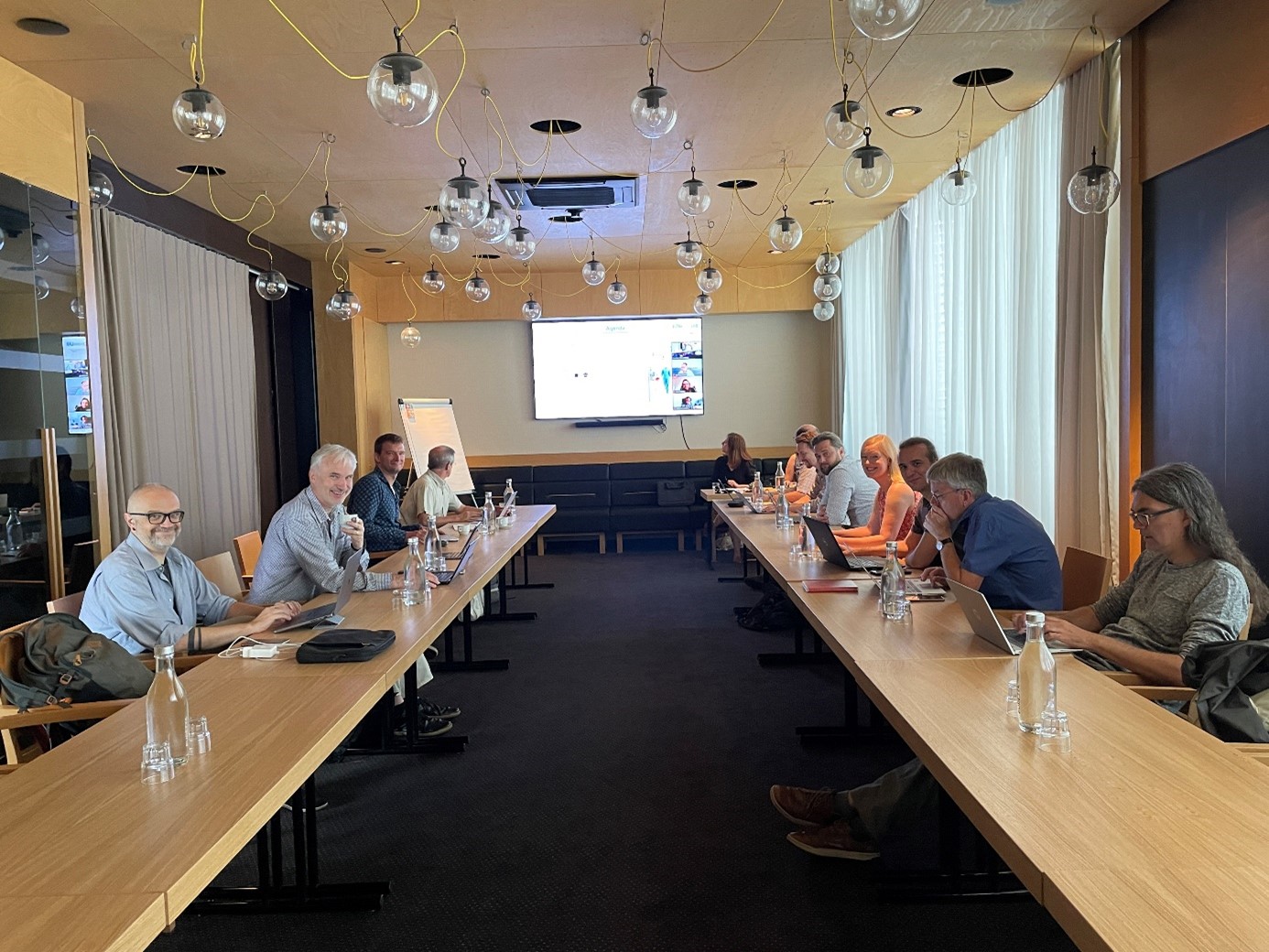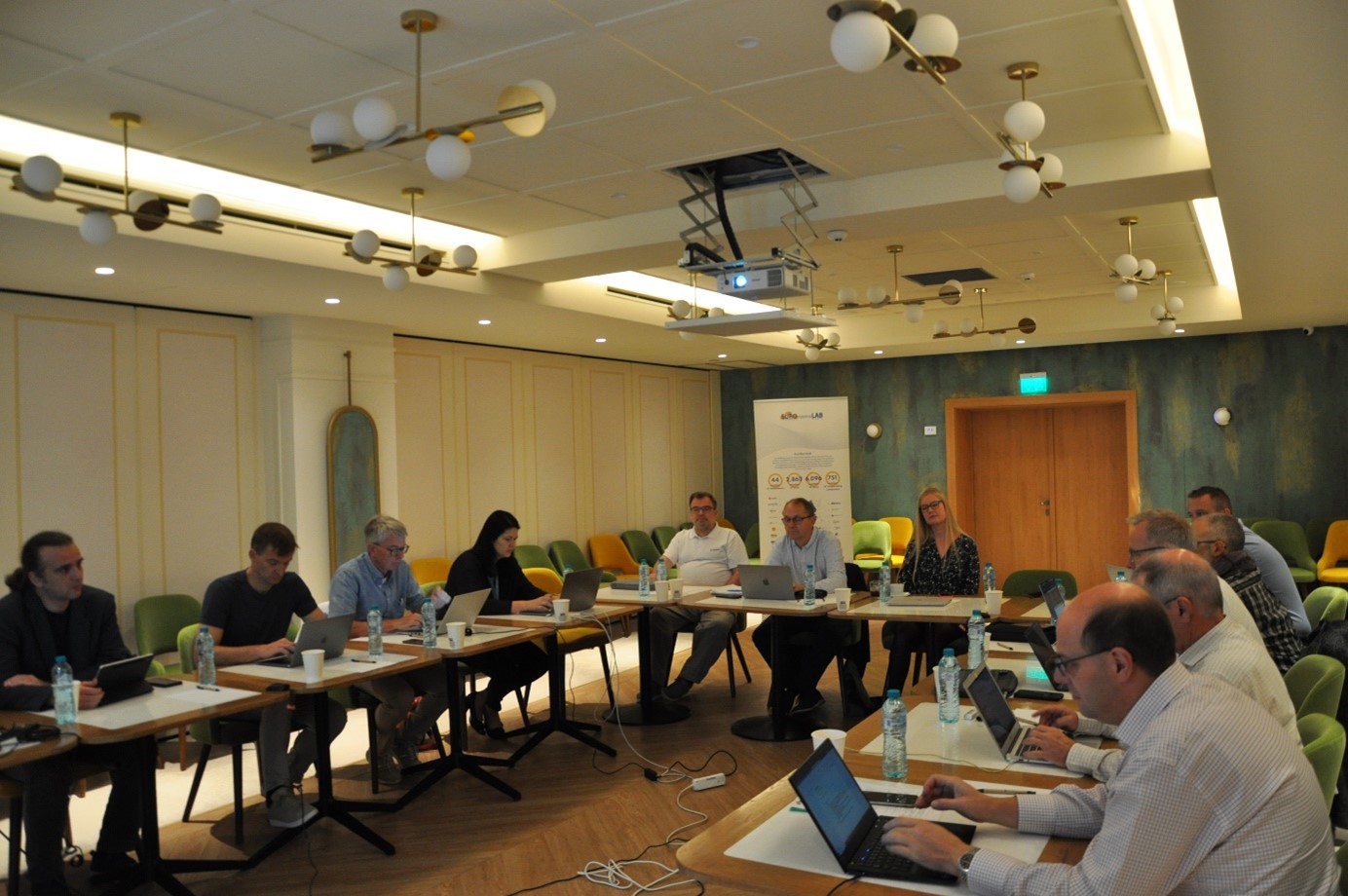EuroNanoLab Overview
EuroNanoLab is a new distributed research infrastructure consisting of over 40 state-of-the-art academic nanofabrication centers across Europe. Its main vision is to accelerate research in the micro- and nanotechnology sector by enabling the transformation of a fragmented landscape of nanofabrication facilities into an integrated knowledge base supporting scientific excellence and providing researchers a fast-track to results. EuroNanoLab strives to provide:
- New « nanofabrication system » able to fabricate more complex micro/nanodevices by integrating the contributions of several specialised cleanrooms to accelerate excellent scientific projects.
- Central-hub-coordinated user access to world-class nanofabrication equipment and expertise, technology development, and knowledge base.
- Multidisciplinary outreach and creation of novel « nanofabrication building blocks » defined together with leading experts in the following initial scientific communities:
- Quantum technologies
- 2D materials
- Nanobiosciences
- Neuromorphic computing
- Astronomy and space exploration
- Fast transfer of technology developments to start-ups and SMEs.
EuroNanoLab helps to create innovative solutions to societal challenges in the fields of energy, environment, transport, health, and general wellbeing. Becoming an ESFRI will help EuroNanoLab to achieve better recognition and an international as well as at a national level.
EuroNanoLab’s model is inspired by the « NNIN » (US distributed infrastructure of academic cleanrooms founded in 2004) and its core partners are cleanroom networks that have been working with this model for 15 years (SE, NL, FR and NO) .

EuroNanoLab’s Vision
Scientists (either from universities of from industry) involved in exploratory research (low-TRL) are by nature addressing a large variety of new ideas. Therefore, their requests to Nanofabrication centers are often unexpected and even the most famous cleanroom do not have ready-to-use technologies to cope with the expectations of all possible researchers. Long and uncertain process developments are thus required in most of the cases. However, the missing process steps may often be ready for use in remote European cleanrooms that neither cleanrooms nor users are familiar with. Within a well-organized distributed infrastructure, it would be possible to offer a much larger toolbox of process know-how than for a single cleanroom and by using this larger toolbox, propose a fast and high-quality solution to most of the Nanofabrication requests.
Countries in the Consortium
Nodes
Cleanrooms

EuroNanoLab’s Mission
Build a Europe-wide nanofabrication infrastructure capable of providing university/industrial users with manufactured nano-objects for research with the highest quality and fastest delivery time
Work jointly with European-wide research communities (e.g. flagship or others) to support their research by anticipating the development of appropriate new technologies
Implementation of EuroNanoLab distributed infrastructure
The main tool for coordination: EuroNanoLab Central Hub
- Gathers partners to make proposals & take decisions.
- Coordinates establishment of new management tools
- Coordinates access & service to users
Euronanolab distributed infrastructure

Responsibilities of EuroNanoLab Central Hub
Single access point for users & external partners
- EuroNanoLab scientific users
- Scientific Committees of user communities
- Other EU networks
- RTOs and industry
Establish harmonized rules
- Cleanroom management & commitments to users
- Access policy
- IP rules
Common information system
- Existing know-how database
- Projects database
- E-infrastructure
Organizes governance and external communication
- Governance meetings
- EuroNanoLab management issues
- Organize international technical expert groups
Coordinates projects for development of new procedures
- Identification of technical challenges
- New process developments
- Process transfer methodology
- Standardization issues
Impact of the EuroNanoLab distributed infrastructure
- More efficient use of resources
- Standarisation of process documentation (references, sustainability)
- Implementation of open science infrastructures
- Higher publication rate
- Improved Investment planning at EU level
- Definition of best practices in cleanroom management and health & safety
- Development of engineer competence and skills
- Back-up equipment and processes
- Translation of nanotechnology research into products & services in a wide range of sectors (incl. healthcare, ICT & novel materials)
- Innovation potential will generate new startup companies & new jobs
- Education of society on nanotechnology
- Accelerating research by faster access to process know-how
- Development of new technologies
- Lower barriers to entry into nanofabrication
- Best in-class e-learning material
EURONANOLAB’S main KPIs

EuroNanoLab Governance
The main governance body of EuroNanoLab is its Steering Committee, composed of one representative per EuroNanoLab member (country). It meets regularly four times a year.


EuroNanoLab steering committee meeting, Delft. (NL), December 2019

EuroNanoLab steering committee meeting, Sinaia (RO), October 2023
EuroNanoLab Steering Committee members
- Vittorio Morandi, CNR (Italy) – Steering Committee chair
- Anna Rissanen , Aalto University (Finland) – Steering Committee vice-chair
- Michal Urbánek, Brno University of Technology (Czech Republic) – Steering Committee vice-chair
- Andris Anspoks, University of Latvia (Latvia) – Steering Committee vice-chair
- Peter Köllensperger, Norwegian University of Science and Technology (Norway)
- Toomas Plank, University of Tartu (Estonia)
- Dmitri Petrovykh, INL – Braga (International institution)
- Sigitas Tamulevičius, Kaunas University of Technology (Lithuania)
- Frank Dirne, Delft University of Technology (Netherlands)
- Susana Cardoso de Freitas, INESC-MN (Portugal)
- Andrei Avram, IMT Bucharest (Romania)
- David Quirión, IMB-CNM Barcelona (Spain)
- Thomas Swahn, Chalmers University of Technology (Sweden)
- Erich Runge, TU Ilmenau (Germany)
- Jean-Louis Leclercq, CNRS – Renatech (France)
International Cooperation
